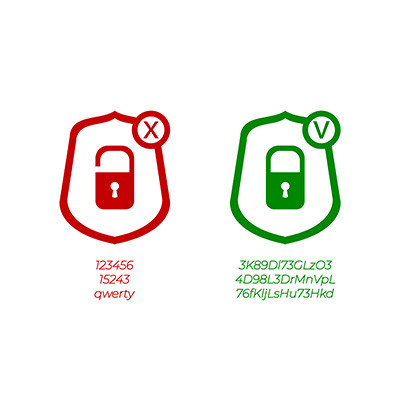Datalyst Blog
4 Simple Rules for Good Passwords
Simple passwords are just not an effective security practice, so if you’re still using credentials like Password, 123456, Guest, or Qwerty, listen up. You need better password hygiene practices before you suffer from a data breach. Here are some ways you can make a better password to protect your business from threats.
For passwords, it also helps to know what is ineffective in addition to what is effective.
What Does a Bad Password Look Like?
A bad password is, to an extent, always going to be a bad password because passwords are not generally good for account security. While they are certainly better than nothing, they are far from the best way to protect an account, despite being the most popular and most common methods of doing so.
It’s remarkably easy to create a bad password, as well as have bad password practices. Whether it’s a case of the password not being complex enough or too easy to guess, or if it’s used for more than one account, they repeatedly hold businesses and individuals back from achieving the level of cybersecurity they need and deserve.
To help you better leverage good passwords, we’ve put together a list of things you’ll want to do to make them better and stronger.
What Does a Good Password Look Like?
Here are some best practices for password use and creation.
Don’t Repeat Your Passwords
If you use your password for multiple accounts, then all it takes is one of them falling victim to a data breach or phishing attack for all of them to be exposed in the same way. You should be using different, complex passwords for each of your accounts with no repeating passwords.
Always Make Them Complex
Complex passwords are easy to remember, but difficult to guess, which is easier in theory than it is in practice. You can make it much easier through the use of a passphrase rather than a password. Your passphrase should be a random string of words that utilize upper and lower-case letters, numbers, and symbols.
Don’t Use Personal Details
Personal details have no place in passwords for two main reasons: it makes them easier to guess for hackers, if the information is something that they can find publicly on the Internet or on social media, and it places more danger on you in the event that the password is compromised.
Use a Password Manager
To remember all of your complex passwords is impossible, so we recommend using a password manager to help secure them all. A password manager uses one master password to call upon a secure vault of passwords when they are needed. It’s the best way to use passwords without putting yourself at risk.
How are Your Password and Cybersecurity Practices?
If you could use a hand crafting better passwords or protecting your infrastructure, Datalyst has got you covered. To learn more, call us at (774) 213-9701.


Comments